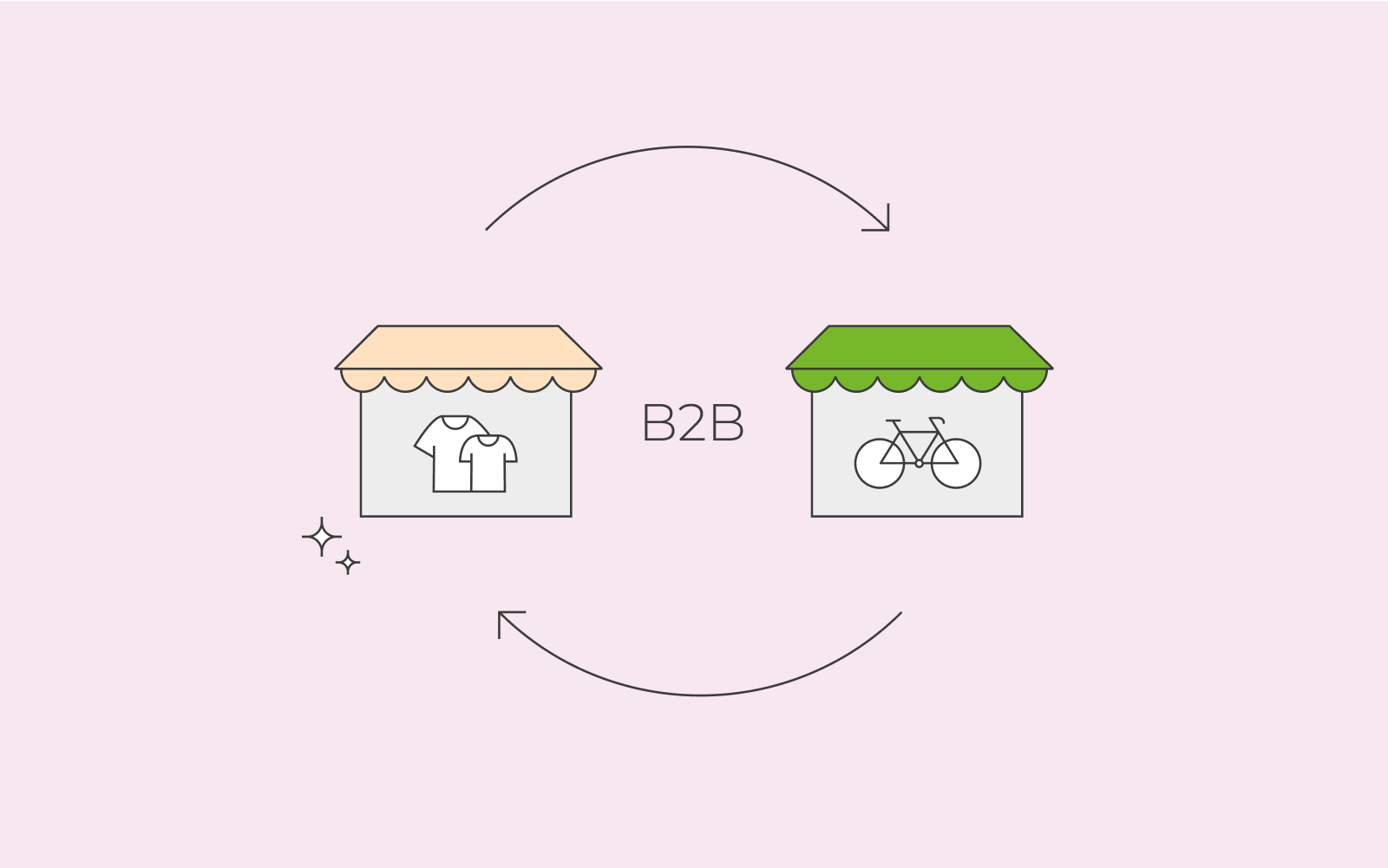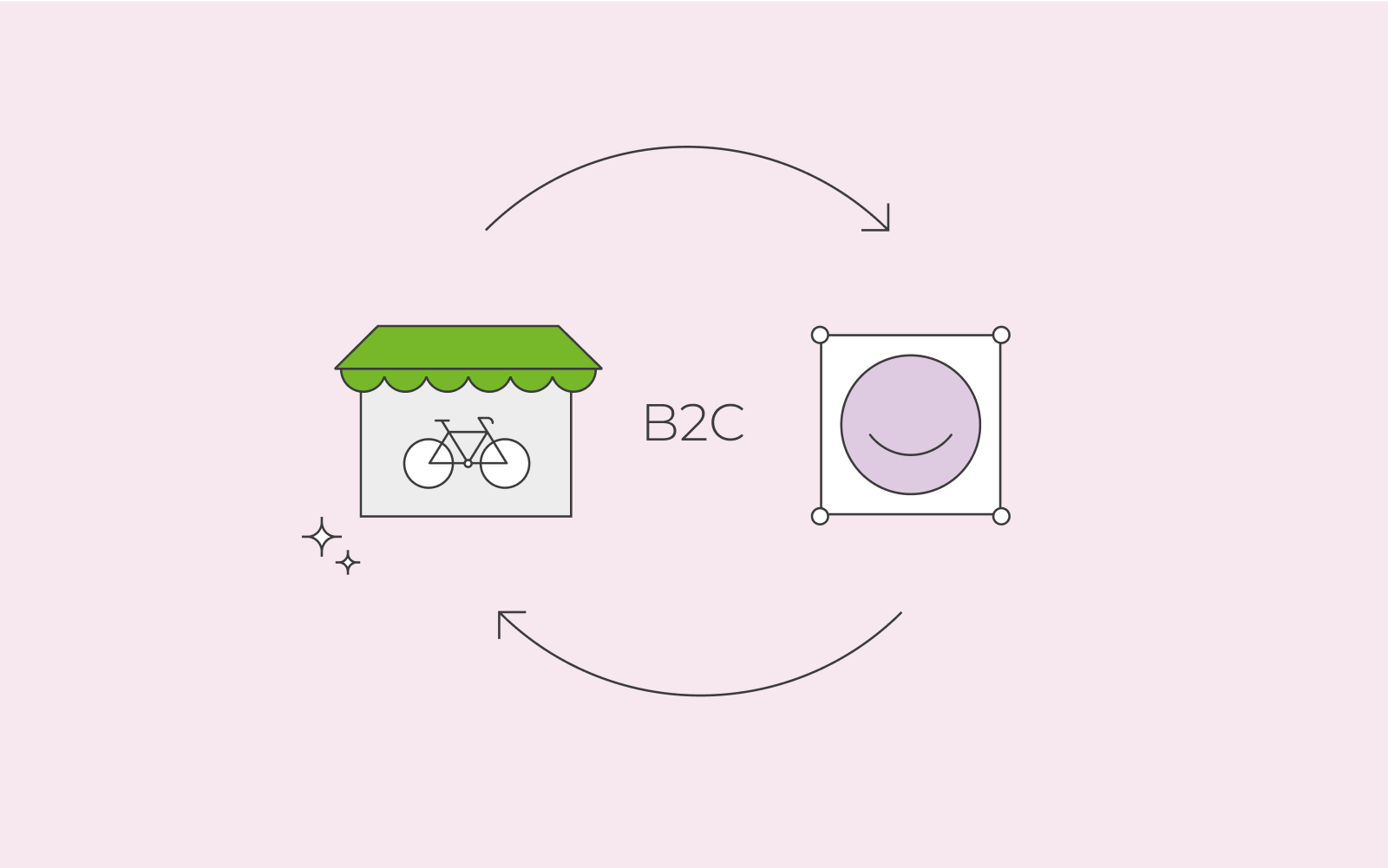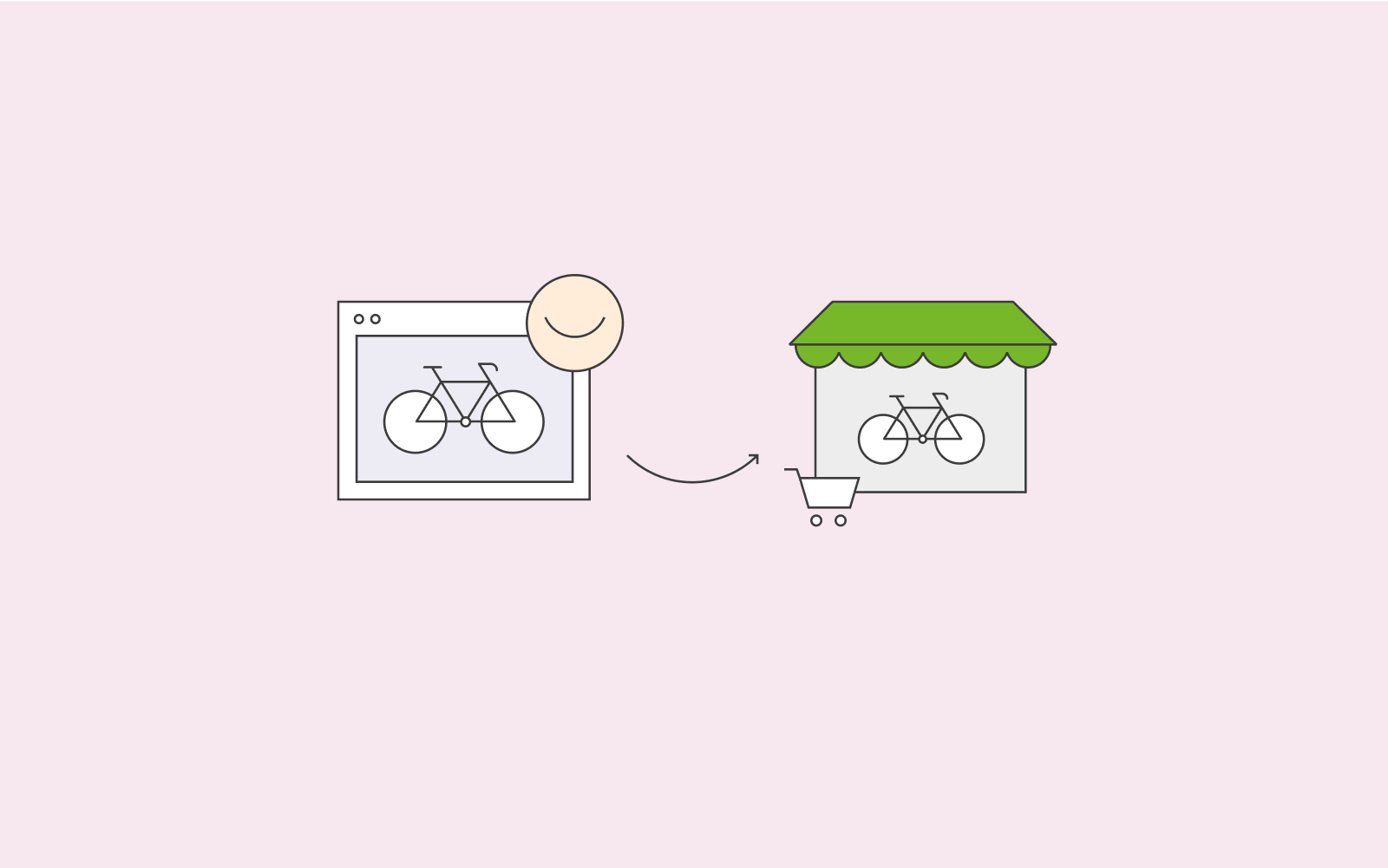What is B2B and B2C?
We’ve explained everything you need to know about business to business and business to consumer
You might wonder what B2B and B2C mean; strange letters mixed with numbers. Well, B2B stands for business to business, and B2C means business to consumer.
In this article, we’ll dive deeper into the B2C and B2B meanings. We’ll also share some insight on how to make these two business methods work for you. Finally, we’ll discuss the difference between B2B and B2C.

On this page
What is B2B?
Business to business is the terminology used when you sell your products or services to other businesses. Typically, B2B marketing focuses on fewer orders but more oversized orders with a high value – up to millions.
What does B2B mean in marketing terms and processes?
If you’re working with B2B, you’ll have more time to perfect your pitch when selling your products/services. This is because you don’t have to appeal to millions of people and their different takes on it; instead, you need to appeal to companies.
An example of B2B would be Boeing who makes aeroplanes for airline industries, or a paper company selling paper to various offices.
B2B marketing entails creating a great relationship with the person purchasing your products/services at the company. You’ll probably have a long term relationship with a lot of communication on a constant basis. The decision to make a purchase in B2B takes a very long time – sometimes, it takes months. Additionally, the purchase is based on the needs of the company. But the significant part of B2B marketing is the results, the long-term relationship you’ll establish with the corporations.
When selling a product, you need to make sure that you understand your clients’ needs and, more importantly, establish trust with the client – this is also referred to as consultative selling because you’ll always be consulting with your client discussing their needs. It’s important always to keep this in mind because trust is key in a B2B relationship. Finally, always remember to be patient and let the company take all the time they need to purchase your product/service.

What is B2C?
Business to consumer is the terminology used when you sell your products or services directly to consumers, not businesses. Typically, B2C marketing focuses on more orders with a lower value.
What does B2C mean in marketing terms and processes?
If you’re working with B2C, on the other hand, you’ll have to make sure that the message you’re promoting has a broader appeal and will cater to every person who might see your ad/business and also cater to their different needs. Again, the goal is to appeal to more customers.
An example of B2C would be, for example, any food or beverage product you buy at a supermarket or the furniture giant IKEA that creates household products for you to decorate your home with.
B2C marketing entails creating a message that appeals to every customer who can purchase your product/service; the relationship is not personal as it would be with B2B. You don’t need to keep in touch with all the customers who are purchasing your products. Once you’ve bought your Pepsi, for example, the relationship ends there.
When selling a product/service in B2C, you need to convince the consumer why they need your product and why it’ll make their lives easier. For example, you need to convince why your towels are the towels these consumers need to buy, whether it’s because it’s super soft and made with the most outstanding products possible.
There are three different ways we’d like to discuss making a decision and purchasing a product as a customer. First, you have impulse purchases made on the spot, you don’t have the need for it, you haven’t even thought about it, but you saw it, and now you want to buy it. Second, there are calculated decisions with long thought processes, such as when you’re buying a painting for your living room or buying a sweater. Lastly, you have purchases that are driven by emotion and instant gratification. For example, you’re thirsty and want to buy bottled water. Your messaging needs to somehow connect with these three types of people who might stumble upon your products because you want to cater to every person’s needs and wants.

Difference between B2B and B2C?
We’ve mentioned the various ways B2B and B2C operates within their lane in marketing. Let’s summarise the significant differences by comparing the two. Let’s start with B2B. Business to business has fewer customers because they’re selling to companies and not individual customers. They have large orders because companies usually need many items to cover their staff and their needs, which also equals higher value orders. With all this, however, comes a longer decision time when actually making the purchase. Still, once the company has made the purchase and is happy with it, a long relationship can be established.
On the other hand, business to consumers has more costumers; B2C can reach all 8+ billion people living in the world, but they’ll have smaller orders because the customer will usually only purchase a product or service for themselves. Smaller orders also equal lower value orders, shorter decision time and shorter relationships. However, none of this is written in stone and is subject to change. For example, you might own a company that requires the customer to buy your products every time it runs out, resulting in a longer relationship if they’re satisfied with the product.
With all this being said, do keep in mind that the people in charge of purchasing products/services for these big corporations (B2B) are people like you. You still want to speak to them in a personal and friendly way. You still need to appeal to them and use words that you would use when you’re trying to promote your business to consumers. Don’t be too academic by using words that are too hard to understand, keep a friendly tone and as cheesy as it might sound, explain to them like you would anyone else why they should choose your products.
